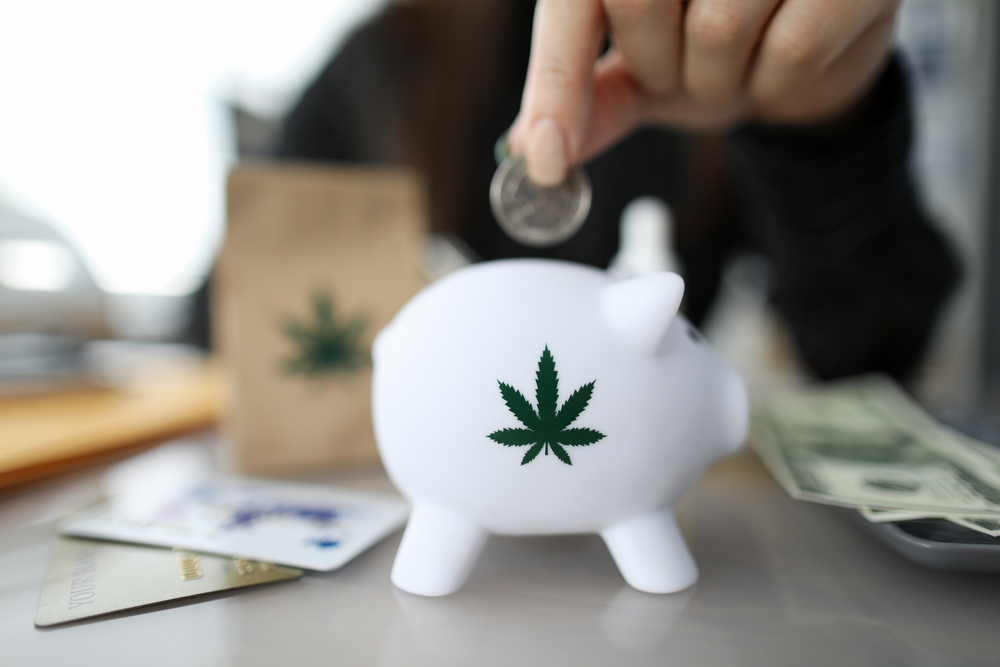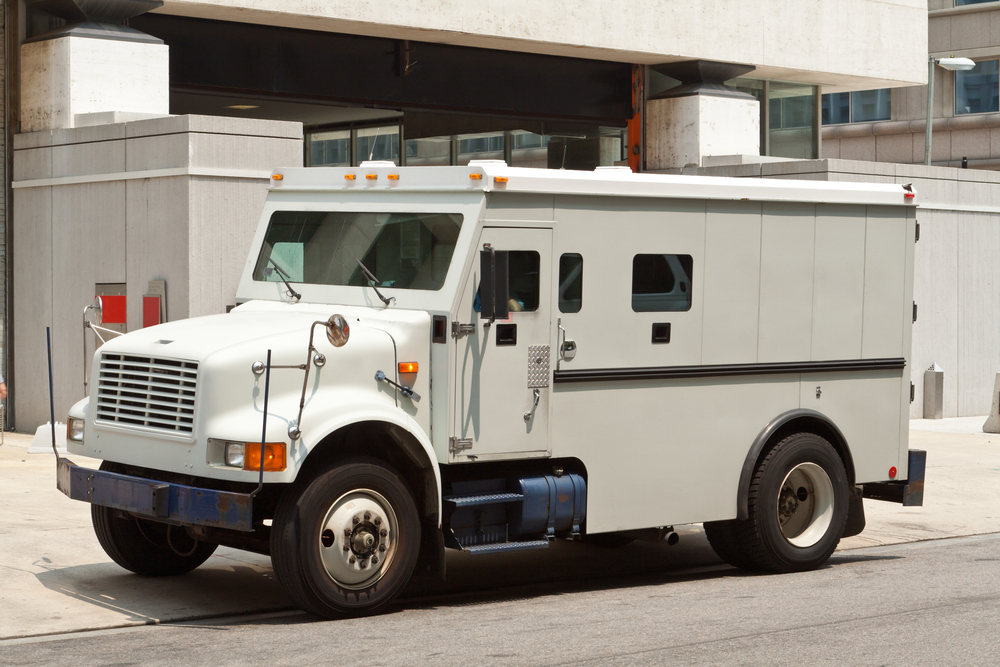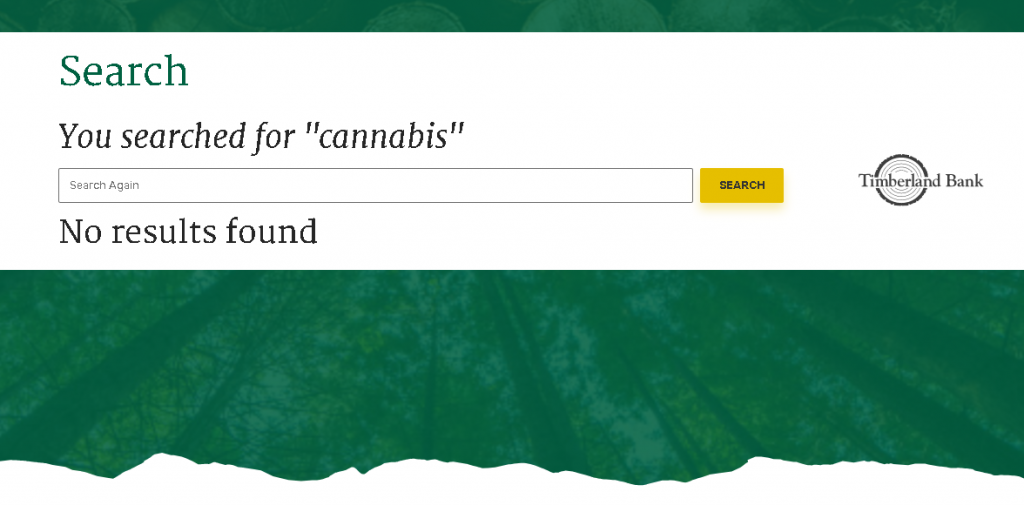
Imagine you ran a successful retail business. Sales were good. Good. Sometimes sales were so ‘high’ you ran out of inventory. But you are only allowed to accept cash for purchases. That’s okay though, your customers understand. It does put you in a difficult position though. Running a retail business which, at any time, has a large amount of cash on the premises.
So, the next logical step would be to make daily, secure deposits. This might be through an armored truck, and a service that picks up your money and delivers it safely to a bank. In large numbered bags. Except, there is no bank that will accept your money. Now what do you do?
That has been the reality for every cannabis touching business in the United States. As cannabis remains a federally prohibited substance, banks can’t touch money from any kind of marijuana venture, whether a cultivator, processor, or retailer.
Banking is an essential service for any business. While states are benefiting from both medical and adult-use cannabis sales, the federal government is not. And now that thirty-six states have legalized either medical and/or adult-use, and new businesses are starting every month, it’s a problem. A big problem for the rapidly growing cannabis industry. Over the past four years, there have been several attempts to address the issue of ‘unbanked’ cannabis businesses. It’s an inconvenient and dangerous scenario for companies earning revenue from marijuana sales. But there may be a resolution soon.

Some retail businesses do cash deposits on a daily basis. Why? Because it is inefficient and frankly dangerous to keep a lot of cash at your business location. Behind the counter and back wall of your local medical marijuana dispensary is some hardcore security—at least one large safe, cameras, alarm systems and probably a 24/7 live security presence.
How big is the problem with theft and violent crimes involving unbanked dispensaries? Huge. The Senate Committee on Banking, Housing, and Urban Affairs first held a hearing in 2019. It was called “Challenges for Cannabis and Banking: Outside Perspectives”, and representatives from CUNA and ABA provided written testimony. They also faced a firing squad of questions from Senators in the session.
Some of the data presented included an in-depth study by the Wharton School of Business Public Policy Initiative. The study found that:
While the legalization of medical cannabis has done a lot to reduce cartel and organized crime, the cash situation does little but provide bait for petty criminals. And create an increased safety risk for owners and employees of dispensaries.
Cash only with the provision of very scattered financial services is some jurisdictions? That’s not working. And since states are also reaping the rewards in terms of tax revenues, the need to offer services to cannabis companies has never been greater.
No checks. No debit cards and no credit cards. That was the reality for most dispensaries until the past two years. Until some types of non-chartered electronic payment services were offered. Major banks and credit unions are federally regulated. That means they literally won’t touch any transactions that emanate from a ‘cannabis touching business.’
But that is starting to change. Some new chartered banks have welcomed ‘weed money.’ They are pioneers trying to solve a problem for unbanked businesses. And partner with dispensaries and growers. And it appears that some are very quiet about that partnership. You won’t see them advertising very much because, ultimately, they could face regulatory problems from the federal government.
For example, banks risk charges of aiding and abetting a federal crime or money laundering. Just for providing financial services, for example, to a chain of medical marijuana dispensaries. There is a small loophole that can allow banks to accept cannabis financial transactions. But it requires continuous filing of ‘suspicious activity reports to satisfy the federal government.
Constant reporting takes time and extra money for banks that can charge additional fees to cannabis companies. But many banks are declining services until cannabis is federally decriminalized.
Some banks and credit unions were early adopters to provide financial services to the unbanked medical and adult-use cannabis sector. They are the stop-gap provision to help cannabis businesses make safe and secure financial transactions. And to deposit cash in a safer location than an onsite safe or inboxes.
Examples of cannabis-friendly financial providers that have provided services so that cannabis businesses are not unbanked, include:
Since 2014, Numerica has served the cannabis industry in Washington. But if you are located outside of the state of Washington, you are out of luck. Numerica provides wire transfer and direct-deposit payroll services for dispensaries. A cannabis business has to be licensed and have approval (or be in good standing) with their local community to qualify.
The phones at Salal Credit Union blew up when they announced in 2014 that they provided financial services to cannabis companies. Salal Credit Union focuses on medical dispensaries and operators producing patient products. They provide domestic and international wire transfers, essential banking services, and tax processing and payments for businesses. But only for businesses in Washington and Oregon.
To become banked by the Seattle credit union, companies have to have good credit, be state-licensed and have no outstanding tax deferrals. Salal Credit Union also conducts a ten (10) day criminal background check for all new accounts.
If you own a cannabis business in Washington State, Timberland Bank has over twenty branch locations. They are an independent bank that has been operating since 1915. They will accept business deposits and provide basic banking services for any business operating under Initiative-502 (marijuana) in Washington State.
Timberland Bank is one of very few non-credit union financial establishments to provide services to the cannabis industry. However, cannabis businesses pay premium service charges. And you won’t see any mention of serving the Washington state cannabis industry on their website. Indicative of the stigma that still exists about marijuana. Affiliating openly with the industry sparks fears that it could be ‘bad for business’ and the financial institution’s reputation.

According to The Hill, on April 19, 2021, the U.S. House of Representatives passed a cannabis banking bill. It moves on to the Senate for review and vote. But this is the furthest any banking bill has traveled at the federal level. And the cannabis industry is hopeful that this legislation will change everything. Because it has been tried many times, but this time, it looks like it may be enacted into law.
In the House of Representatives, the “SAFE Banking Act” received approval by an overwhelming majority vote of 321-101. Senate Majority Leader Charles Schumer (D-NY) has stated that the SAFE Banking Act will receive the support of the Senate this time. Having previously been stalled in the former GOP majority Senate.
Right now, there are thirty-six (36) states that have legalized medical cannabis. And another 17 states that have also legalized adult use (recreational). Cannabis stocks were quick to respond to the positive news. An indication that uniform acceptance of a national cannabis industry is just around the corner. Which will solve safety issues, problems with unbanked businesses, improve tax collection compliance at the state level, and help prevent money laundering.
Featured Image: marketing.lasers@ya.ru | Deposit Photos
No Information on MarijuanaDoctors.Com should be used to diagnose, treat, prevent or cure any disease or condition. You can view our Full Disclaimer here.